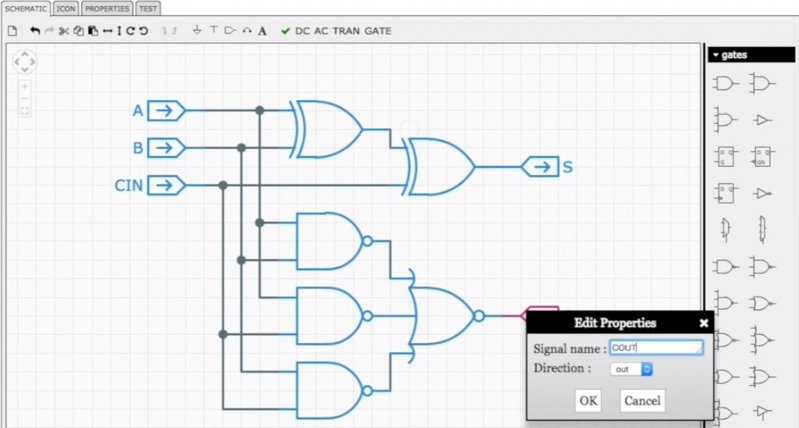| Fundamentals of Digital Circuits From MITx |
| Written by Sue Gee | |||
| Wednesday, 07 September 2016 | |||
|
Are you interested in how a computer works on the inside. If so a free course from MIT on the edX platform that started yesterday could be just what you are looking for.  Computation Structures Part 1: Digital Circuits, which runs for 10 weeks from September 6, 2016, is the first of three modules
that cover:
The instructors are all from MIT. They are Steve Ward, Professor of Computer Science and Engineering, Silvina Hanono Wachman Lecturer in Electrical Engineering and Computer Science and Chris Terman Senior Lecturer, in the same department. He will be familiar to those who have already studied the three-course series on Circuits and Electronics. This was the edX expanded version of Anant Argarwal's course which launched the MITx platform that then grew into edX with the addition of more academic and industry partners. Not only does the Computation Structures have an impressive line-up of tutors it also has highly positive review from its first run in the 2015-2106 academic year. To quote just two for Part 1: Digital Circuits: A great course covering the details of computation, both from electronics and from a more theoretical point of view. The assignments are usually more challenging than other similar MOOCs and probably are the best part of the course: for example, in the finite state machines section, you will program directly a Turing machine simulation. All material is great, and especially practice-Labs are very interesting and challeng[ing].In addition, I received prompt replies from assistants, for example from Silvina, that makes me feel connected like in the traditional classroom.
This video gives you an idea of what to expect:
Each course lasts for 10 weeks with an estimated workload of 6 hours per week and all three have the same format - short videos on concepts with quizzes to test understanding and practice labs using interactive software that enables students to experiment with circuits: Part 2: Computer Architecture starts November 29th and covers:
Part 3: Computer Organization starts February 8th, 2017 and covers:
Students are expected to have a rudimentary knowledge of electricity and some exposure to programming before embarking on this series. The courses are free although if you want a verfied certificate that costs $49 for each. A note on each of them says: Unfortunately, learners from Iran and Sudan will not be able to register for this course...EdX truly regrets that US sanctions prevent us from offering all of our courses to everyone, no matter where they live. If you want a practical approach to the hardware/software interface this series of course comes highly recommended and if you want a similar experience with electronics then the 3-part Circuits and Electronics is even more highly regared by past students. More InformationComputation Structures Part 1: Digital Circuits Computation Structures Part 2: Computer Architecture Computation Structures Part 3: Computer Organization
Related ArticlesMITx Experimental Course Completed - A Report Harvard and MIT Join Forces in edX
{loadposition signup)
Comments
or email your comment to: comments@i-programmer.info |
|||
| Last Updated ( Wednesday, 30 June 2021 ) |



